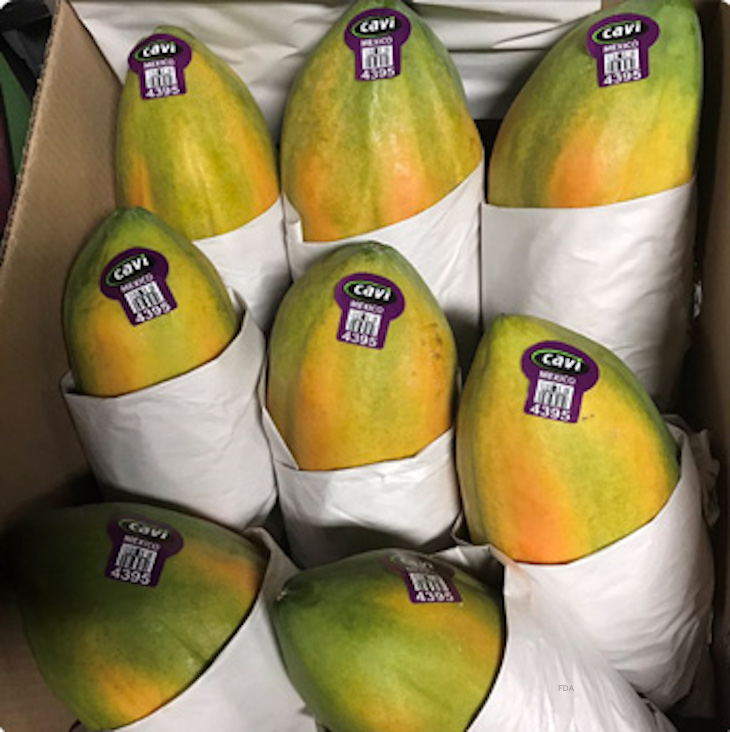The FDA is calling on all sectors of the papaya industry to improve practices to better protect consumers in the wake of a Salmonella Uganda outbreak linked to fresh imported papayas. Since 2011, there have been eight Salmonella outbreaks linked to imported, fresh papayas.

The 2019 outbreak is ongoing, but the first seven outbreaks have sickened more than 500 people, has caused more than 100 hospitalizations, and caused two deaths. The FDA notice states, “This trend has to stop.” In the current outbreak, at least 71 people in 8 states are sick with the same strain of Salmonella Uganda as of early July, 2019. Twenty-seven people have been hospitalized.
In the current outbreak, the FDA has named Agroson’s LLC, the distributor of Cavi brand papayas, and has requested that the company issue a recall. The company refused, and in fact issued a statement saying there is no proof that their product is contaminated with Salmonella or is involved in this outbreak.
So the FDA has contacted the company’s wholesale customers to tell them not to offer the fruit for sale. And recommends that consumers discard Cavi brand whole, fresh papayas.
The pattern of recurrent outbreaks have involved, or are suspected of being associated with, papayas grown in Mexico. The FDA states that “The recurring nature of these outbreaks is a clear indication that more must be done within all sectors of the papaya industry to protect its customers and to meet its legal obligations. This includes growers, importers and even retailers that can and must do more.”
So the government has issued a letter calling on all sectors of the papaya industry to take action to prevent these outbreaks. They want growers, packers, shippers, and retailers to review their operations and make all necessary changes to strengthen safeguards.
The FDA is recommending several steps to the papaya industry. They want growers to assess factors that make their crops vulnerable to contamination, including identifying pathogens in the growing environment. They want to see growers examine the use and monitoring of water used to grow, spray, move, rinse, or wax crops.
All sectors of the industry should enhance traceability, since papayas are a perishable commodity. They also want to the industry to facilitate tracking of the product so it can be removed from commerce to prevent any additional consumer exposure.
And the industry should fund and actively engage in food safety research to identify potential sources and routes of contamination. This should lead to data-driven and risk-based preventive controls.
The FDA has deployed an inspection team to the packing house and farm that was linked to the contaminated papayas in the current outbreak through epidemiologic and traceback evidence. These findings will be made public when the investigation is complete. The government has also increased sampling and screening of papayas at the border. In addition, the FDA has issued a warning letter to Agroson’s LLC, which “uncovered significant violations of the Federal Food, Drug, and Cosmetic Act.”
The notice states that recurring outbreaks taking place with any commodity are unacceptable. And they add that all sectors of industry should work together to investigate the cause of these outbreaks, review food safety practices and take action to prevent more outbreaks.




